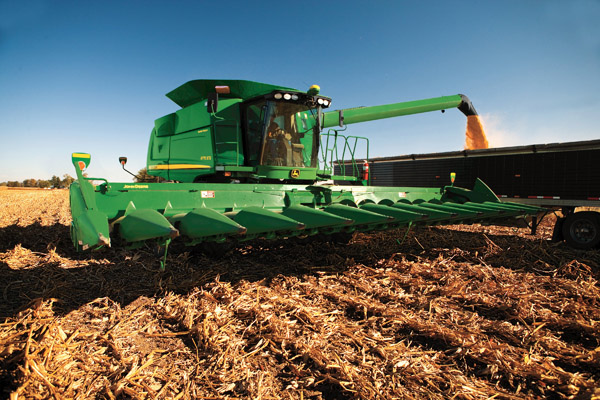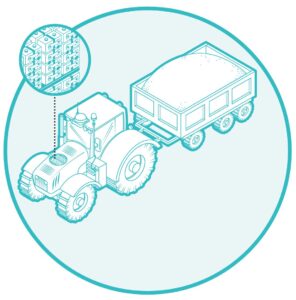You might not think farms have much need for broadband services, but in fact agriculture is being shaped by the services offered. According to the USDA report, Broadband Internet’s Value for Rural America, the more multi-faceted the farm business, the more the farm uses the Internet.
Grant Noland of Noland Farms says, “In today’s agriculture environment everything is high-speed. Broadband is the way we access information in real time which adds quite a bit of value to our business. Market quotes and the volatility on the market directly affect our bottom line. On the other end, a lot of our field management, from the seed to the fertilizer, is done off files that are capable of being accessed via mobile broadband that can be saved and later plugged into our equipment.”
The farm sector, a pioneer in rural Internet use, is increasingly comprised of farm businesses that purchase inputs and make sales online.
Farming isn’t the only rural business impacted by broadband services. Analysis suggests that rural economies benefit generally from broadband Internet availability. In comparing counties that had broadband access relatively early (by 2000) with similarly situated counties that had little or no broadband access as of 2000, employment growth was higher and nonfarm private earnings greater in counties with a longer history of broadband availability.
Matthew Carroll, Innkeeper of The Inn at Irish Hollow, and member of Jo-Carroll Energy says, “We’re out in the country on a 500-acre property where we run a beautiful country inn with private cottages. We have broadband Internet through Sand Prairie Wireless which helps run the business behind the scenes, taking reservations, and keeping us connected with our guests that stay with us. And, if they wish, we also now have access for our guests to keep them connected even while they’re out here in the country.”
Most employment growth in the U.S. over the last several decades has been in the service sector, a sector especially conducive for broadband applications. Without broadband services, rural communities are at a disadvantage when it comes to competing for service sector economic development opportunities, such as call centers and software development.
Jean Anne Grunloh, Executive Director for the East Central Illinois Development Corporation says, “One of the reasons we started our regional broadband initiative is because when I asked our economic development professionals what we could address on a regional basis, all 26 economic development leaders from 11 counties agreed that there was an absolute need for rural broadband in our areas to continue being competitive for economic development.”
So, if broadband is so desirable, then why is there a disparity in the broadband offerings between rural and urban areas?
Residents in rural areas have always faced higher costs for telecommunication services than those in urban areas and, at least for the foreseeable future, will continue to do so. Rural areas are characterized by low population density. With fewer people in any geographic space, the per capita costs of providing telecommunication services rise. Rural maintenance and repair crews, especially those providing services in very remote regions, cover a larger territory than urban crews, resulting in more overtime and travel expenditures. (National Telephone Cooperative Association, 2000).
While costs are higher, the benefits outweigh the costs. Look at the numbers. In 1995, there were roughly 16 million Internet users across the globe; by 2008 there were nearly 1.5 billion, about 22 percent of the world’s population. Two-thirds of U.S. adults had in-home Internet access by 2008 (PEW).
The Bureau of Census reports online retail sales went from $31 billion in 2001 to $107 billion in 2007. Online wholesale trade in farm products was an estimated $5 billion or 4 percent of all wholesale farm product sales in 2006.
Many rural electric and telephone cooperatives have taken on the challenge of offering broadband services to their respective memberships despite the costs. They see the benefits of rural broadband and they want you, their rural members to have every advantage. Your quality of life is being affected by broadband whether or not you are a frequent Internet user. Support the efforts your cooperative is making to enhance your connections. It could mean a greater harvest for your community in terms of economic development and job creation.









